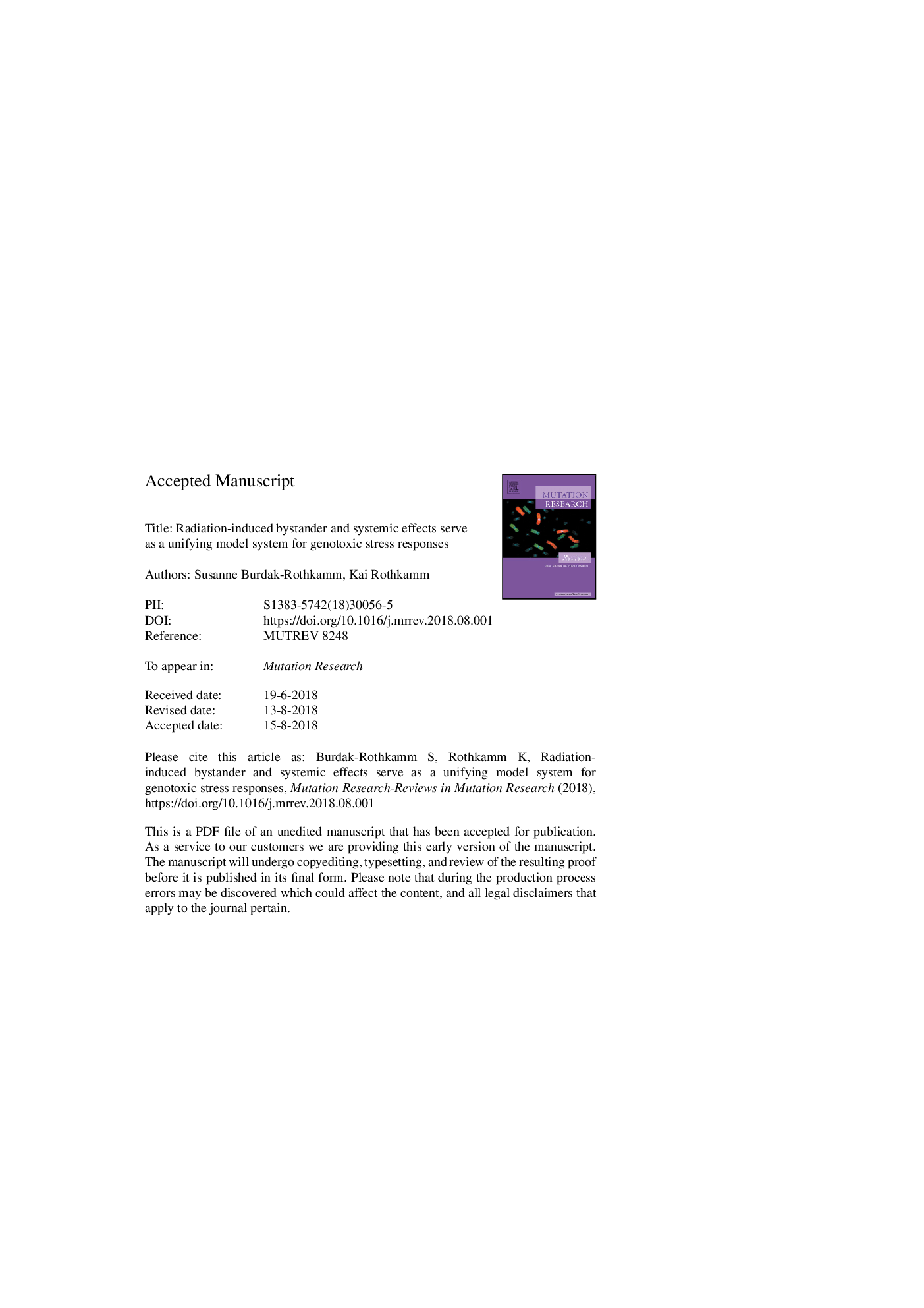| Article ID | Journal | Published Year | Pages | File Type |
|---|---|---|---|---|
| 8456677 | Mutation Research/Reviews in Mutation Research | 2018 | 40 Pages |
Abstract
Of clinical importance is the potential contribution of bystander DNA damage to an increased risk of malignancies. Defects in DNA damage repair pathways are frequently observed in tumours, which may affect their susceptibility to bystander DNA damage. The potential role for molecular targeted inhibitors in the therapeutic exploitation of bystander responses as well as their differential modulation of targeted and non-targeted effects is also discussed in this context.
Keywords
Genotoxic stress responseDSBATM- and Rad3-relatedTGFbetaSCEATRNF-kappaBBERDDRNHEJCOX-2ataxia-telangiectasia mutatedROSRadiation-induced bystander effectLETLinear Energy TransferBystander effectSister chromatid exchangeTransforming Growth Factor BetaDNA damage repairbase excision repairATMCancerCyclooxygenase-2double strand breaknon-homologous end joiningNuclear factor-kappa BRIBENADHHomologous recombinationNitric oxideDNA damage responseRadiationFanconi anaemiaReactive oxygen species
Related Topics
Life Sciences
Biochemistry, Genetics and Molecular Biology
Cancer Research
Authors
Susanne Burdak-Rothkamm, Kai Rothkamm,
